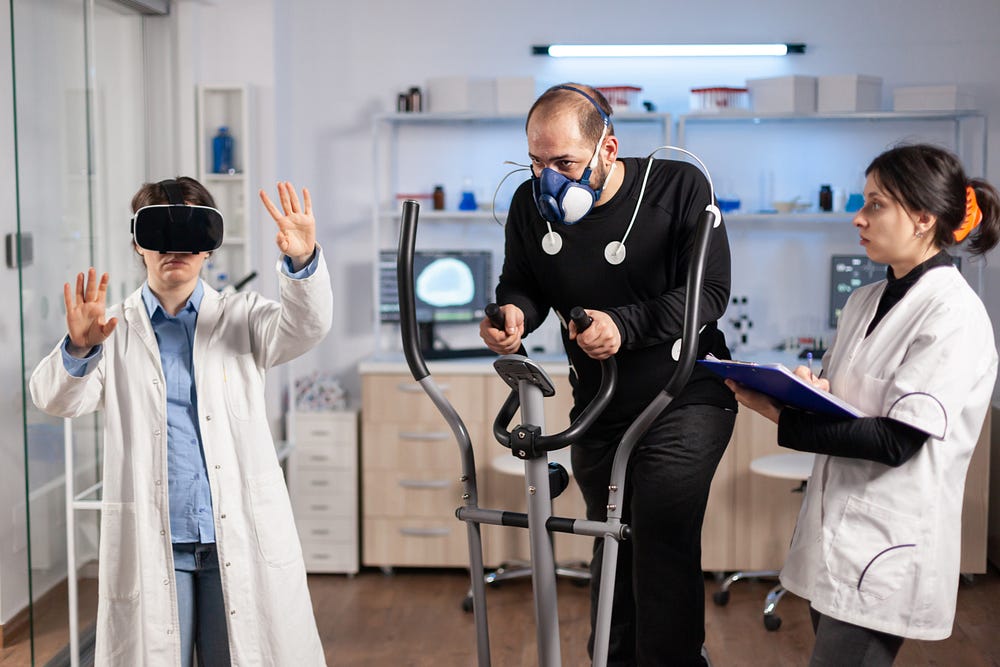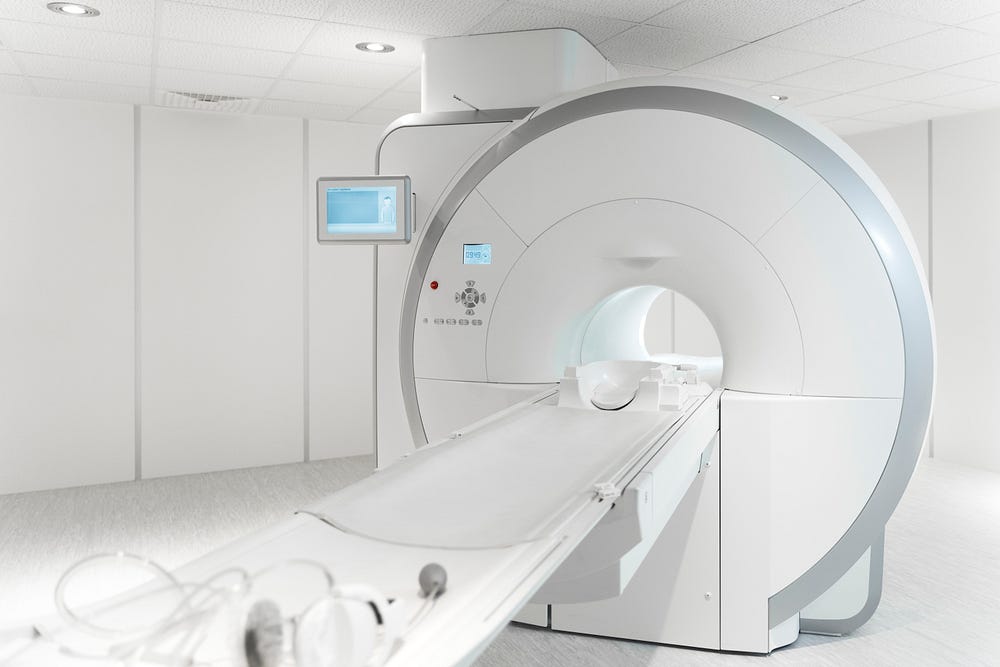Smart Medicine or Machine Mistake?
Goodbye Human Doctors?

“AI is not a futuristic technology; it is here now, transforming industries and improving lives. Let us harness its power responsibly to create a better future for all.”
— Sundar Pichai
A New Era in Medicine
Artificial Intelligence (AI) is no longer a concept from science fiction — it’s an active force, reshaping the world around us. And nowhere is its impact more profound than in the world of healthcare. By merging the analytical power of machines with human empathy, AI-powered healthcare is unlocking new levels of efficiency, accuracy, and personalization that were once unimaginable.
Imagine a system that thinks, learns, and assists — just like a seasoned doctor, but with the ability to process vast amounts of data in seconds. That’s the promise of AI in medicine, and it’s already becoming a reality.
Milestones that Changed the Game
AI’s integration into healthcare has evolved in leaps and bounds. From simple data analysis tools to complex systems capable of predictive analytics, AI is now a core part of how modern medicine operates.
1. Smarter Diagnoses
Thanks to machine learning, AI can now analyze medical images and patient data to detect illnesses earlier and with more precision than ever before. Whether it’s spotting a tumor on a CT scan or analyzing genetic data to predict disease risk, AI-powered diagnostics have become indispensable.
2. Predictive Analytics in Action
AI’s ability to sift through massive datasets helps doctors predict health risks, anticipate complications, and personalize treatment plans. This proactive approach is helping healthcare providers intervene earlier — improving outcomes and lowering costs.
3. The Rise of Robotic Surgeries
AI-driven robotic surgery is revolutionizing the operating room. These precision tools assist surgeons with complex, minimally invasive procedures, reducing patient recovery time and enhancing surgical outcomes.
Transforming Patient Care — One Algorithm at a Time
So, how is AI actually improving the day-to-day experience for patients and providers?
Accelerated Diagnostics
AI systems now analyze X-rays, MRIs, and pathology slides faster and with more accuracy, flagging subtle abnormalities that human eyes might miss. This means earlier diagnoses, more timely interventions, and better survival rates.
Predictive Care for Better Health
AI doesn’t just treat illness — it helps prevent it. By analyzing data from electronic health records and even wearable devices, AI can identify patients at high risk for conditions like diabetes or heart disease before symptoms even appear.
Smarter Health Admin
Virtual assistants and AI-powered chatbots are easing the load on busy healthcare staff. They schedule appointments, send medication reminders, and answer patient queries — making healthcare more accessible and responsive.
Decision Support for Doctors
Clinicians now have AI at their fingertips to help them make more informed, evidence-based decisions. These systems analyze patient data in real time, offering treatment recommendations tailored to each individual’s needs.

Challenges on the Road Ahead
While the future looks bright, the path isn’t without its obstacles.
- Privacy & Security: With AI analyzing sensitive patient information, data protection must be ironclad.
- Accuracy & Bias: Algorithms must be tested and continually improved to avoid mistakes or bias in diagnoses.
- Equity in Access: Not every region or institution has the infrastructure to support advanced AI tools — closing that gap is critical.
Solutions lie in strong data governance, transparent regulation, and a commitment to making AI tools affordable and accessible to all.
Case Study: AI’s Role in Beating Cancer
One of the most powerful applications of AI is in oncology. In a recent breakthrough, researchers used AI to examine MRI scans and detect cancerous growths earlier than ever — sometimes before human radiologists could see them.
Beyond detection, AI is helping tailor treatments based on each patient’s unique genetic makeup and medical history, reducing side effects and improving recovery outcomes.
Even in research, AI is accelerating discoveries by analyzing patterns across millions of patient records — identifying new drug targets and paving the way for precision medicine.

Looking Forward: A Smarter, More Human Healthcare
The future of AI in healthcare holds incredible promise. We envision a world where diagnoses are instant, treatments are tailored, and care is compassionate, not rushed.
But it’s not just about technology — it’s about how we use it. By keeping ethics, transparency, and accessibility at the heart of innovation, we can build a healthcare system that’s more effective and more human.
In Conclusion
Artificial Intelligence is not replacing doctors — it’s empowering them. It’s not about machines taking over, but about helping people live longer, healthier lives.
The transformation is already underway. By embracing AI with intention and care, we’re not just witnessing the future of healthcare — we’re actively shaping it.
Comments
Post a Comment